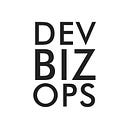Does Automation Mean the End of Coding?
What do you think of the following statement below?
“The future of coding is no coding at all.”
Who said this? You might think it was something said by a business leader contemptuous of developers getting all the glory these days.
Think again however, as this was said by the CEO of GitHub, at GitHub’s global developer conference nonetheless. Was he trolling the entire audience, throwing shade at a generation of cut & paste programmers, or giving us a clear warning of the future?
Clearly we are writing less code these days. When I started programming, I was writing a lot more lower level code to do things that are easily covered by libraries, API’s and frameworks these days. There are now any number of powerful scripting languages that enable you to glue various components together without getting into the gory details.

A lot of what we had to do as developers has become automated. We can spin up servers in minutes and launch a complete, functioning app in less than an hour. All the load balancing, security, authentication, and database access is already handled. You can call various open source libraries, merge various projects on GitHub, and grab code snippets on Stack Overflow.
Programming in the future is certainly not going to entail more coding. If anything, people will write even less code given the advances in machine learning and the global community of programmers sharing even more code. Large parts of what we do in the software development lifecycle will become more mechanized and automated.
What does this mean for programmers? In a previous post, I posed the question of whether programming will become a blue collar job. Far from it, software is becoming more and more of a creative endeavor. When we are able to do less of the lower level, plumbing stuff, we can direct our energy and intellect towards bigger challenges. That requires creativity.
There will always be a need for lower level programming. There will be people and tools to handle writing TCP sockets or allocating memory and semaphores from device queues. Most of us however will never have to worry about the plumbing, we just care that it works and allows us to build more awesome and bleeding edge products.
Rather than coding being some obscure thing for geeks, programming is becoming something for everyone. We are seeing it with coding camps, the rise in hackathons, added courses in schools, and simpler online tutorials. People are becoming more technically adept as the bar to becoming technical enough to program is more accessible to a broader set of the population.
What do you think about the future of programming and the role of AI? What will being a programmer mean in the coming decades?

Is Luke Skywalker actually a Jedi?
Okay, I am a big Star Wars geek and really excited about The Last Jedi coming out in December…
We help IT leaders in enterprises solve the cultural challenges involved in digital transformation and move towards a community based culture that delivers innovation and customer value faster. Learn more about our work here.
